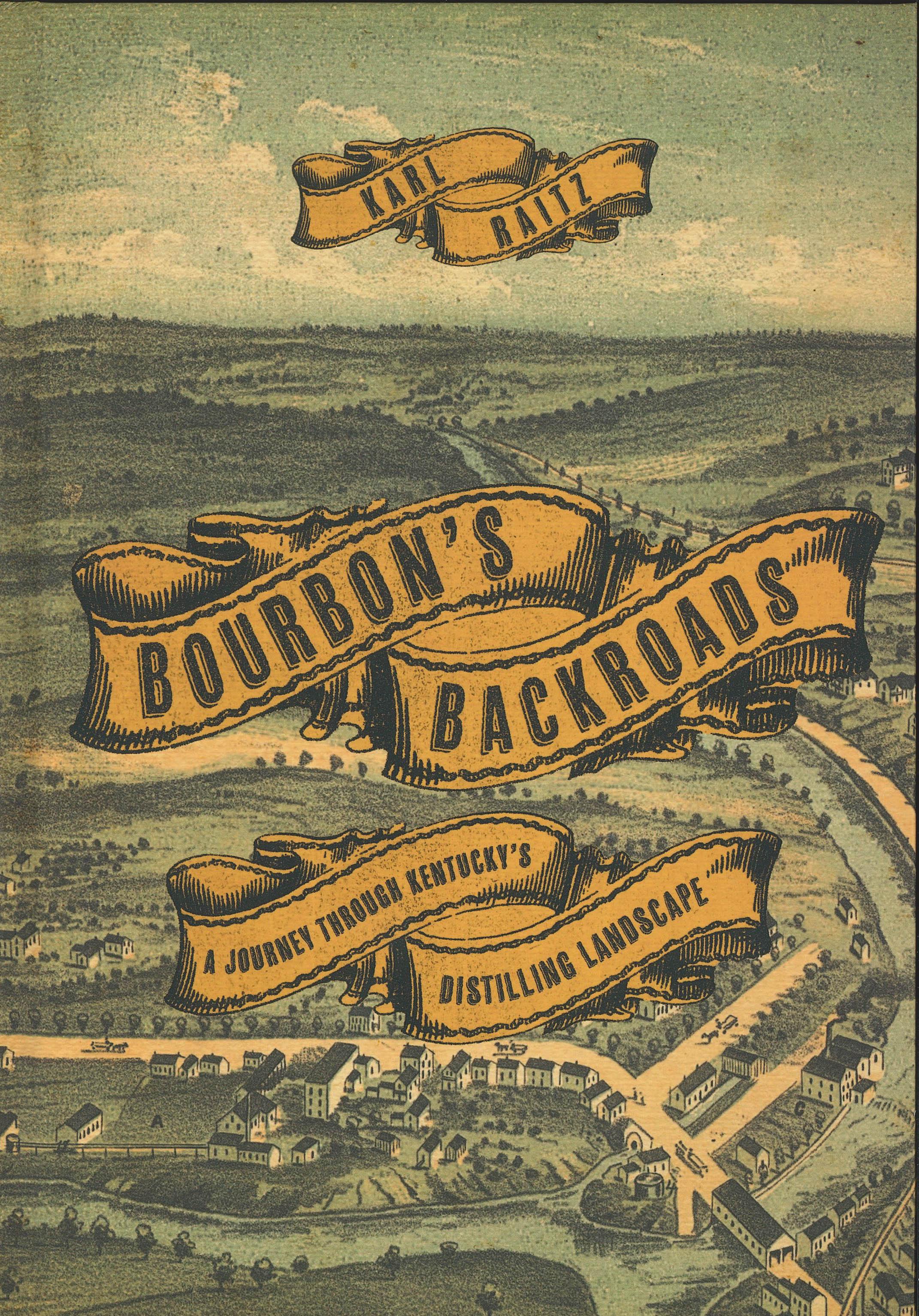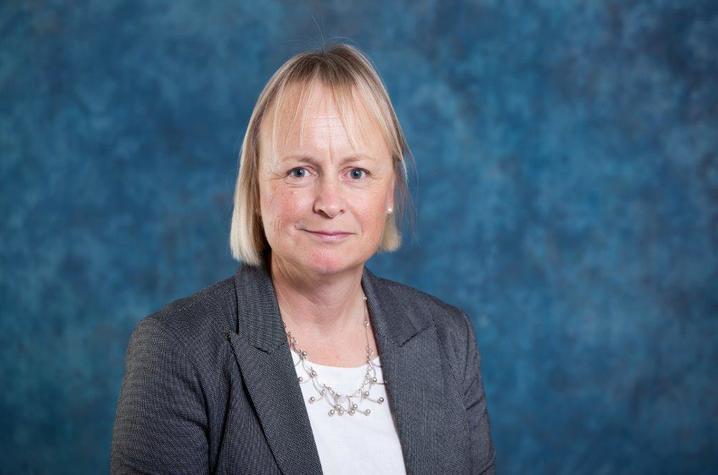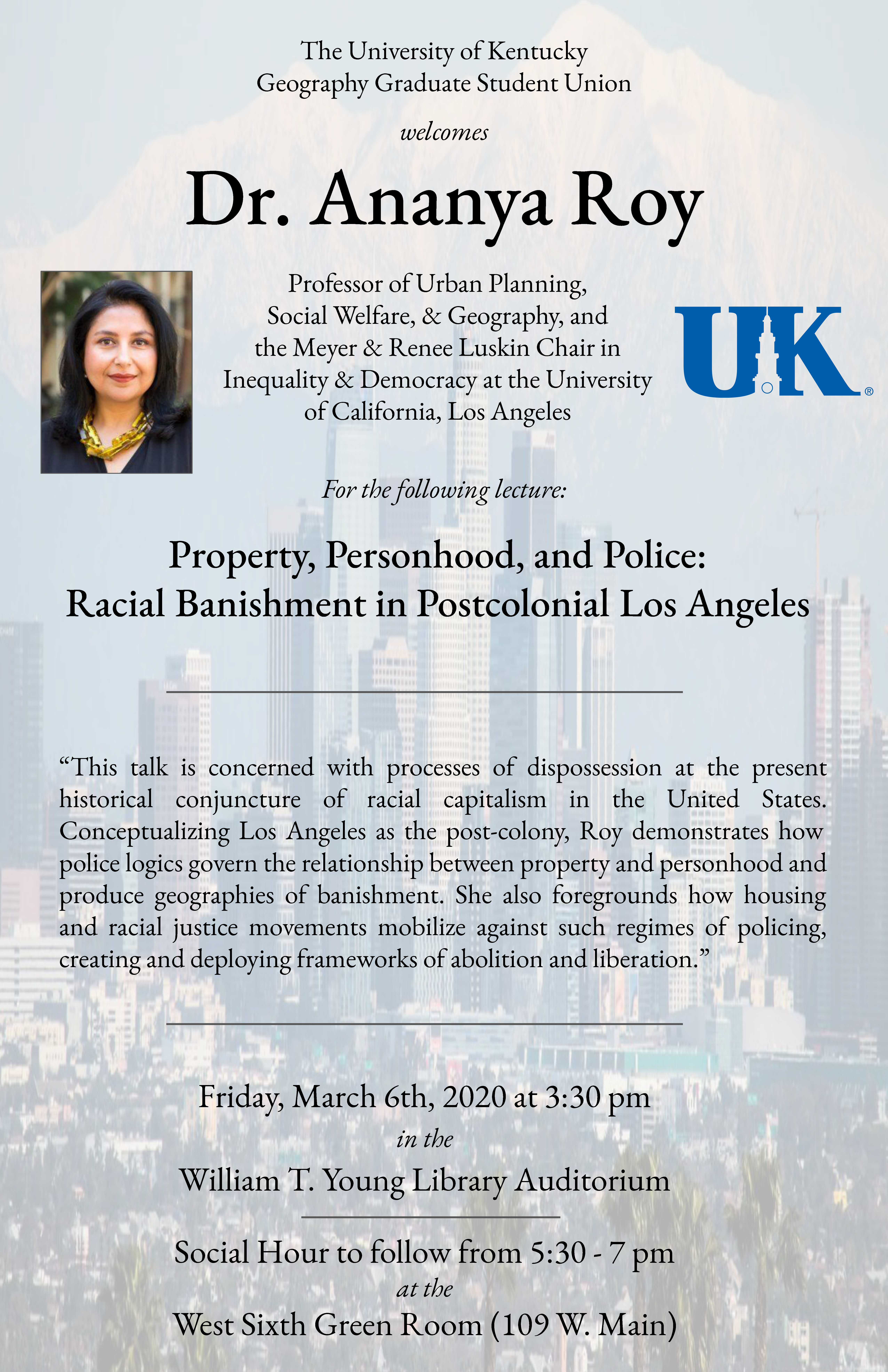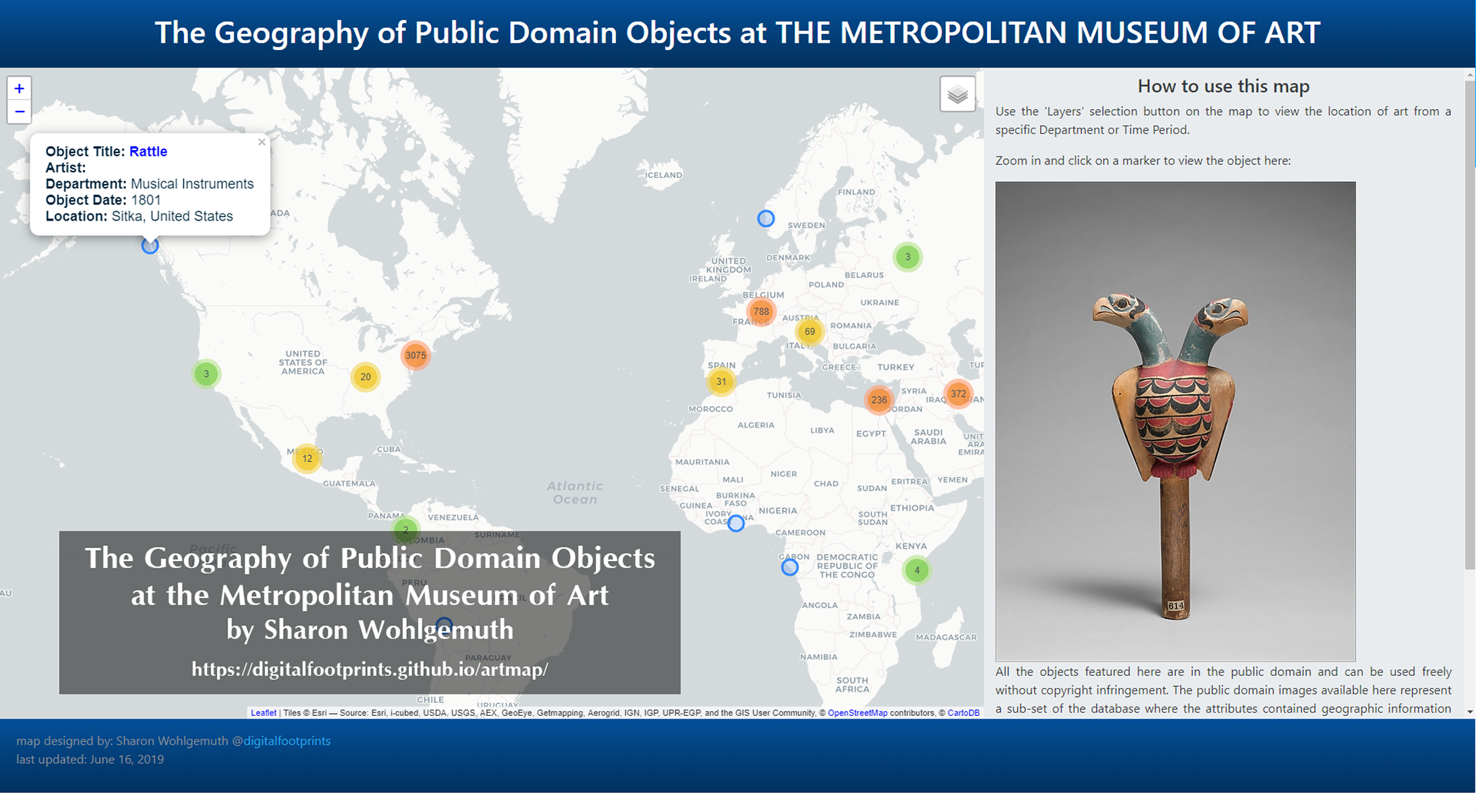CANCELLED: Geography in Bluegrass Day
Due to university closure throughout the rest of the Spring semester, Geography in the Bluegrass Day has been cancelled
Due to university closure throughout the rest of the Spring semester, Geography in the Bluegrass Day has been cancelled
By Katie Cross Gibson
 With more than 50 distilleries in the state, bourbon is as synonymous with Kentucky as horses and basketball. As one of the Commonwealth's signature industries, bourbon distilling has influenced the landscape and heritage of the region for more than two centuries.
With more than 50 distilleries in the state, bourbon is as synonymous with Kentucky as horses and basketball. As one of the Commonwealth's signature industries, bourbon distilling has influenced the landscape and heritage of the region for more than two centuries.
Due to university closure throughout the rest of the Spring semester, Naming and the Politics of Identity in Latinidad has been cancelled
By Lindsey Piercy
 Sue Roberts, associate provost for internationalization and professor in the Department of Geography at the University of Kentucky, has been named a fellow of the American Association of Geographers (AAG).
Sue Roberts, associate provost for internationalization and professor in the Department of Geography at the University of Kentucky, has been named a fellow of the American Association of Geographers (AAG).

This talk is concerned with processes of dispossession at the present historical conjuncture of racial capitalism in the United States. Conceptualizing Los Angeles as the post-colony, Roy demonstrates how police logics govern the relationship between property and personhood and produce geographies of racial banishment. She also foregrounds how housing and racial justice movements mobilize against such regimes of policing, creating and deploying frameworks of abolition and liberation.
Gay bars are failures for both queer and mainstream LGBT politics. They are too identitarian, normative, and capitalistic for the former, too frivolous and banal for the latter, and too exploitative for both. What little we know about gay bars comes in the context of gay neighborhoods or as backdrops for more interesting, transgressive performances. But gay bars exist primarily outside gayborhoods—there are more cities with lone gay bars than there are gay bars in San Francisco, Chicago, and Los Angeles combined.
This talk reports on the queerness of one of 52 gay bars I studied that are more than an hour’s drive from another. I argue that these “outpost” bars are queer places without queer politics, best conceived in relation to both the regions they serve and to big-city LGBT life: relatively cosmopolitan and dumpy, relatively un-capitalistic and Republican, relatively queer and apolitical. They are unique sites of convergence for the rural and urban, the cosmopolitan and provincial, tensions that can help extend the metronormative critique away from binaries or a rejection of “the” city. A reorientation towards places, rather than abstract spaces, helps make sense of what might otherwise seem surprising about the small-city lives of the majority of LGBT people: that the gay bars that fail most deeply at both queer and mainstream LGBT expectations might be the queerest places of all.
The Louisiana State Penitentiary (Angola) is a site embedded with historical legacies of plantation slavery and settler colonialism; as the largest maximum security penitentiary in the United States, the prison also reflects the racial injustice of contemporary US mass incarceration. Situated on the site of an old plantation, the prison hosts the Angola Rodeo twice a year, an event that crystallizes violent multispecies social relations in the merging of the US West and South as two distinct kinds of colonial projects.Whereas much scholarship and activism has worked against the wholesale dehumanization inherent in chattel slavery, settler colonialism, and mass incarceration, this paper works to interrogate and disrupt the human-anima binary through which processes of dehumanization are sustained. Drawing together postcolonial studies and animal studies, the paper centers empirical research on the Angola Rodeo to highlight how racialization and anthropocentrism are intertwined logics of subordination and exclusion that carry forward into the present. Ultimately, the paper suggests the need for a mode of analysis and action that does not maintain the subordination of the animal, and instead, takes a de-anthropocentric and decolonial approach to injustice.
By Lindsey Piercy

The University of Kentucky is proud to announce the first graduates of New Maps Plus — an online graduate program in innovative digital mapping.
To register for free: https://www.eventbrite.com/e/kentucky-law-journal-annual-symposium-tickets-71975006181
Schedule: https://documentcloud.adobe.com/link/track?uri=urn:aaid:scds:US:c9245a1…